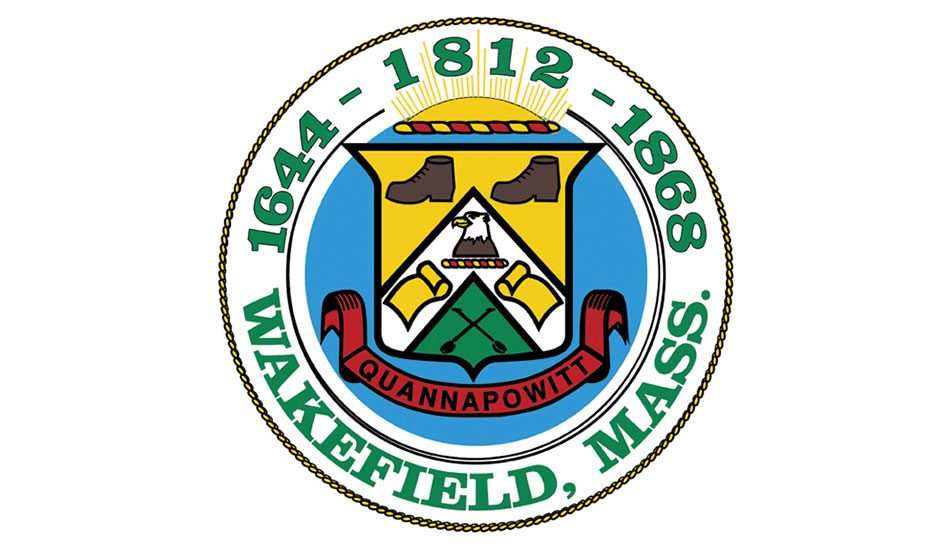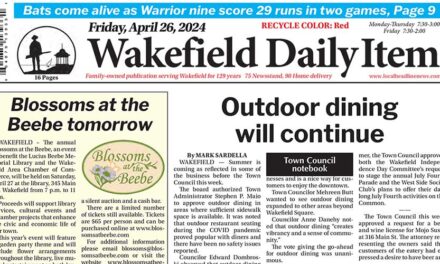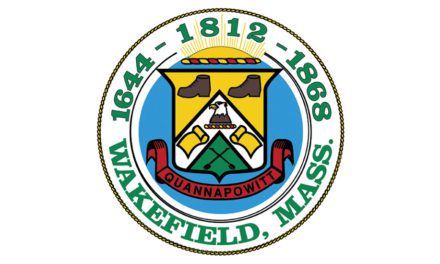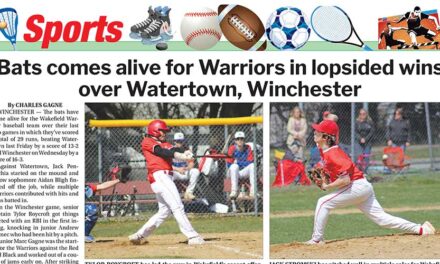By MARK SARDELLA
WAKEFIELD — The Zoning Board of Appeals appears to be inching toward a decision on “Crescent Commons,” the 40B affordable housing development proposed for 44-48 Crescent Street. Developer Joseph Boccelli and his attorney Brian McGrail met with the Zoning Board this month to provide an update and discuss next steps.
Crescent Commons would replace three homes currently at 44,46 and 48 Crescent Street. One side of the proposed building would face Crescent Hill, a small one-way street. The project, which originally called for 56 units, was earlier reduced to 45 units. The latest plan calls for 40 units in a four-story building with the top floor “stepped back” to reduce the appearance of height.
The reductions in the unit-count came after the ZBA expressed serious reservations about the size and density of the project, concerns that have been echoed strongly by abutters who believe that the building would be out of place in their neighborhood.
The project development team has been meeting with a subcommittee of the Board of Appeals, namely Jim McBain and Ami Wall, to try and address some of those issues.
At the latest meeting of the full board, McGrail told the ZBA that he and Boccelli have continued to work with the subcommittee and Ezra Glenn, the 40B consultant who has been assisting both sides with the process.
McGrail said that those discussions have focused on things like architecture, building materials and colors. At the subcommittee’s request, he said, the developer agreed to use Hardie Plank siding instead of the originally planned vinyl siding.
McGrail said that architect Peter Sandorse was in the process of working on revised design plans based on suggestions from McBain, a retired architect. McGrail maintained that few 40B projects have the design elements and features that this building will have.
The revised design is expected to be ready for the Dec. 15 ZBA meeting. In the meantime, McGrail suggested discussing with the board some possible conditions for the project.
McBain suggested a condition prohibiting workers from parking on streets in the neighborhood during construction. It was noted that the town owns a parking lot a block from the site, near the Omelette Factory that is seldom full. Wall wanted included in the conditions some clear language around hours of work.
Regarding other conditions, ZBA member Chip Tarbell noted that the board had been moving more and more towards spelling out as much as possible in the decision and on the plans as opposed to listing expectations as conditions.
McGrail said he expects that meetings will continue with the subcommittee until the next full ZBA meeting on Dec. 15.
On behalf of his client, McGrail agreed to extend the public hearing on the project. Under Chapter 40B rules, the ZBA must close the public hearing within 180 days from the opening of the hearing unless the applicant has agreed in writing to an extension. McGrail agreed to an extension to Jan. 21.
Under Chapter 40B rules, the ZBA must render a decision based on a majority vote of the board and file its written decision with the town clerk no later than 40 days from the close of the public hearing. However, the Wakefield board has historically not taken the 40 days and typically votes before closing the public hearing.
According to MassHousing, since its passage in 1969, Chapter 40B has supported almost all affordable housing construction in Massachusetts outside of the Commonwealth’s largest cities. Approximately 70,000 total units have been produced under Chapter 40B, of which more than 35,000 units are restricted to households making less than 80 percent of the area median income.





